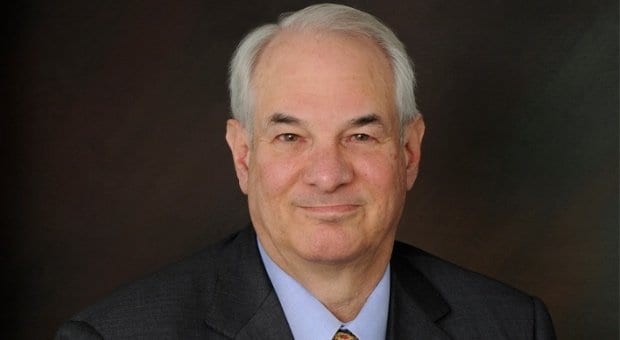A Toronto civil rights lawyer says that if Trinity Western University’s (TWU) bid to establish a new law school is approved he will challenge the accreditation in court.
Clayton Ruby takes issue with TWU’s community covenant, which students must sign upon admittance.
The declaration states, among other things, that students are responsible for upholding biblical teachings, which include no premarital sex and no homosexuality. Failure to uphold these commitments, according to the student handbook, could result in discipline, dismissal or a refusal to readmit a student to the university.
“If they get granted status by the BC government, we will sue because it is immoral and unconstitutional to ban gay students,” Ruby asserts.
Ruby says the proposed law school at TWU would impose a “queer quota” on incoming law students. He estimates that there are approximately 1,600 places in law schools across Canada and that the 60 new places proposed by TWU would be off-limits to openly gay students.
“Straight students are eligible for 1,660 seats, and then there’s a quota based on an immutable characteristic for being gay — unacceptable and unconstitutional,” he says.
In June 2012, TWU submitted a proposal for accreditation to the Federation of Law Societies of Canada, which determines whether common-law degree programs meet requirements set out by Canadian law societies.
The organization decided that questions regarding TWU’s covenant fall outside the scope of its approval committee and decided to create a special advisory committee to consider the issue. Reports from both committees will be released at the same time.
A spokesperson for the federation says the committees have not yet reached a decision and would not speculate as to when one might be expected.
TWU did not respond to a request for comment in time for publication, but in January president Jonathan S Raymond told Xtra that Canada protects religious rights for Canadians and that TWU in turn respects gay citizens’ right to hold their own views.
“TWU’s covenant is not anti-gay nor discriminatory,” Raymond said. “Students sign codes of conduct at universities voluntarily. TWU’s covenant reflects our identity as a Christian university. The Supreme Court of Canada, in 2001, upheld TWU’s right to have a covenant and professional schools. This ruling still stands.”
In 2001, the Supreme Court of Canada upheld TWU’s right to teach Christian values — even if they are homophobic. The court found the university’s teacher program graduates are entitled to hold “sexist, racist or homophobic beliefs” as long as they don’t act on them in the public school classrooms to which they might be assigned.
The final decision on whether or not TWU will open a law school rests with the provincial government, something Ruby believes may leave the door open to a Charter challenge.
Ruby notes that the parties in the 2001 case conceded that the Charter did not apply and that Charter grounds were only raised tangentially. However, the Charter does apply to the actions of the provincial government, he says.
“TWU has the right to continue preaching its anti-gay message,” reads a memo released by Ruby’s firm. “However, TWU does not have the right to an approval from the Federation of Law Societies or the Province of British Columbia. Accreditation from the BC government is an endorsement of the queer quota. TWU’s freedom of speech and freedom of religion rights do not extend so far.”
The BC Civil Liberties Association told Xtra in January that TWU’s application should be considered on its merits and should not be denied on grounds that may violate the school community’s freedom of religion and freedom of association.
“The BC Civil Liberties Association intervened in support of Trinity Western when essentially the same issue arose years ago now, with respect to their ability to educate teachers,” BCCLA president Lindsay Lyster said. “In that case the Supreme Court of Canada clearly said the fact that you are expected to sign on to a code of conduct doesn’t mean you can’t be a teacher and, equally in my view, in a matter of law, that you can’t be a lawyer.
“So, I don’t think that as a matter of law there’s any reason why, because Trinity Western is a Christian university, it can’t have a law school,” she said. “And in fact, it’s important to know there is a fine tradition of Christian universities with fine law schools that produce fine lawyers.”
Ruby says TWU’s covenant is an action — not a belief — and therefore not protected by religious freedom.
“They are establishing a law school granting degrees and refusing them to gay students,” he says. “All that is action — not belief. In other words, they have the widest possible scope under freedom of religion for their beliefs, but they do not have a very wide scope for discriminatory actions. I look in vain in the Bible for the command to operate a law school.”
Related:
Law school students, alumni object to Trinity Western application
Law school deans object to Trinity Western application

 Why you can trust Xtra
Why you can trust Xtra


